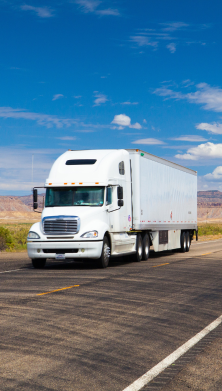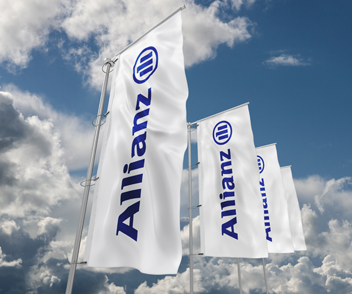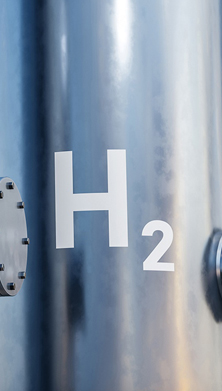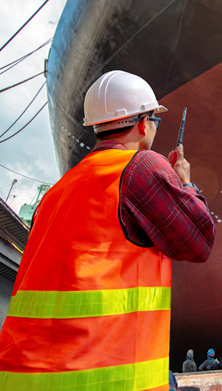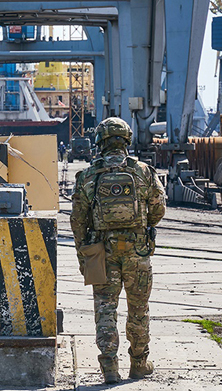The grounding of an ultra large container ship in the Suez Canal brought traffic on the central shipping route between Europe and Asia to a standstill for almost a week before it was freed. In this Q&A, AGCS Global Head of Marine Claims, Régis Broudin, looks at some of the potential implications that the incident could have for marine insurance claims.
What kind of claims activity is the marine insurance market likely to see from the blockage of the Suez Canal caused by the Ever Given container ship?
Although the current situation is still uncertain, potential claims scenarios are likely from a number of different areas. Any damage caused to the vessel during the incident, such as to the bottom of the vessel or its propeller, for example, will be covered by hull and machinery (H&M) insurance. H&M insurers are also responsible for the costs of the salvage operation, including the freeing, refloating and towing of the vessel. The size of this claim will be dependent on the scale and length of the operation.
The blockage from a risk management
point of view
- How do operators approach the salvage of such a huge ship? What are the challenges?
- What is the likely impact on global supply chains? Which goods may be affected?
- What are the challenges of mega ships in general? What lessons can be drawn from this incident?
- & more in our Q&A with Global Head of Marine Risk Consulting, Captain Rahul Khanna
What about third-party claims?
- There are many scenarios for third party liabilities that might arise from an incident such as this, including, for example, any damage caused to infrastructure or claims for obstruction. These are typically covered by one of 13 mutual insurance groups globally (so-called protection and indemnity insurance clubs) which provide marine liability cover to shipowners for approximately 90% of the world's ocean-going tonnage (in the case of this incident it is the UK P&I Club). Liability claims may come from organizations such as the Suez Canal Authority for loss of revenues (and also potential damage to the canal), as well as from other vessels blocked in the area (business interruption/loss of hire, or claims for compensation of cargo delays).
Bigger ships create bigger problems
Do you also expect to see cargo-related claims?
The cargo on the vessel is also insured separately. The initial reports are optimistic that there has not been significant physical damage to the cargo on board in this incident. The vessel seems to have maintained its power supply, so any refrigerated cargo is expected to still be in good condition. However, there is the potential for cargo claims resulting from damage caused to perishable goods from delays.
Lessons to be learned
- What has caused the grounding of the MS Ever Given in the Suez Canal?
- What are the some of the risks that accompany increasing ship sizes?
- Is the MS Ever Given incident a wake-up call for the industry?
- & more in our Q&A with Global Head of Marine Risk Consulting, Captain Rahul Khanna
There has been talk of “General Average” potentially being declared because of this incident. What is this and how does it work?
- General Average is a historic legal concept which goes back to the days when many cargoes were carried on one vessel and the owners of the cargo took collective responsibility for losses which occurred en route.
- General Average occurs when one of the interests involved in the voyage (for example the cargo or the vessel itself) is sacrificed for the common good of the rest of the interests. When the ship-owner - or its Captain declares a ‘General Average’. the costs or loss arising out of this event – including the salvage costs - are then shared collectively by all those interested in the voyage, but only in proportion to the value of their cargo on board, for example.
- The only way for cargo interests to contest the General Average is to prove the unseaworthiness of the vessel or the willful misconduct of the owner. If they succeed they then have a recovery action against the vessel owners and their P&I insurers.
- The settlement of a General Average case can be a lengthy process. It can take years to settle the final claim and the increase in the size of container vessels is ensuring this process is taking longer. Hence if the ship-owner considers the expense to be manageable they typically prefer not to declare it. However, once expected costs look likely to exceed any “General Average” threshold in any insurance policy, it is more likely to be declared.
Safety Statistics
Nearly 19,000 ships passed through the Suez Canal in 2020, according to the Suez Canal Authority - an average of 51.5 ships per day.
The Suez Canal has a good safety record overall with shipping incidents rare. There were 75 reported incidents in total in the canal between 2010 and end of 2019. More than a third involved container ships (28).
However, groundings (such as the Ever Given incident) are the most common cause of shipping incidents in the canal – 25 in the past 10 years or 1 in 3 of all shipping incidents in the canal.
Together, grounding, collision and contact incidents account for half of all shipping incidents in the Suez Canal over the past decade.
Such large shipping incidents clearly constitute a complex challenge for claims practitioners?
- Dealing with incidents involving large ships, such as fires, groundings and collisions, are becoming more complex and expensive from a claims perspective. For example, data from the Nordic Association of Marine Insurers (Cefor) has previously shown that the most costly 1% of all claims account for at least 30% of the value of total claims in any given year.
- For claims teams, working on such large shipping incidents involves being available 24/7 and working closely with the salvors – as a lead insurer in such an incident you even have to negotiate with the salvors in order to secure the best contract in a very short space of time, often in a highly pressurized environment.
Our expert
Further information
Find out more in our annual review of trends and developments
in shipping losses and safety
in shipping losses and safety
Newsletter
Keep up to date on all news and insights from Allianz Commercial









